The right to bear arms isn’t just a constitutional issue — it’s a women’s rights issue. Author and commentator Katie Pavlich explains why guns are the great equalizer between men and women.
Male/Female Differences

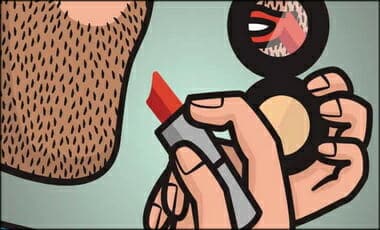
Gender Identity: Why All the Confusion?
Are male and female one and the same? Or are there real male-female differences rooted in biology? Ashley McGuire, author of “Sex Scandal: The Drive to Abolish Male and Female,” explains.
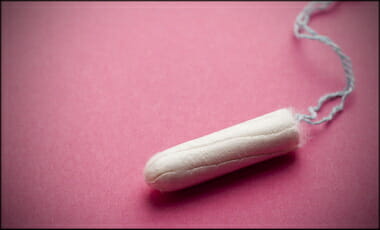
Men Get Periods Too
“Men can get periods too!” claims HuffPost. Their viral article has sparked outrage and controversy across the inter-webs. But we shan’t jump to conclusion! Join us as we investigate their claim and all its implications.

Christina Hoff Sommers Has A Killer Serve
During an interview with NPR’s Lulu Garcia-Navarro on June 25th, 2017, tennis great John McEnroe said that tennis great Serena Williams would rank about “700 in the world” if she played against men. The outcry on social media and in the press was swift, harsh, and omnipresent. But was it deserved? Christina Hoff Sommers, AEI Resident Scholar and Factual Feminist, serves up her analysis. (McEnroe’s comments)
What do you get when you cross sports with hyper-genderism? You get the usual outrage machine train wreck of course. Like when tennis great John McEnroe said that if Serena Williams played in men’s professional tennis she’d rank around 700th. The media erupted as if to say, “You cannot be serious!” Yes, he can—as even Williams herself agreed. (POWERLINE)
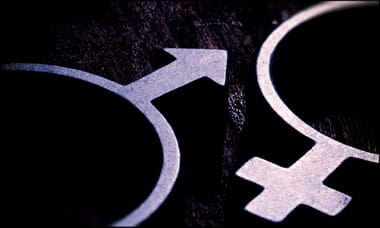
The Hazards of Being a Male
Here is the PDF of the following.
- Herb Goldberg, The Hazards of Being Male (New York, NY: Nash Publishing, 1976), 13-19.
This is for a study i am in with a few men.
[p.13>] Most men live in harness. Richard was one of them. Typically he had no awareness of how his male harness was choking him until his personal and professional life and his body had nearly fallen apart.
Up to that time he had experienced only occasional short bouts of depression that a drink would bring him out of. For Richard it all crashed at an early age, when he was thirty-three. He came for psychotherapy with resistance, but at the instruction of his physician. He had a bad ulcer, was losing weight, and, in spite of repeated warnings that it could kill him, he was drinking heavily.
His personal life was also in serious trouble. He had recently lost his job as a disc jockey on a major radio station because he’d been arrested for drunk driving. He had totaled his car against a tree and the newspapers had a picture of it on the front page. Shortly thereafter his wife moved out, taking with her their eight-year-old daughter. She left at the advice of friends who knew that he had become violent twice that year while drunk.
As he began to talk about himself it became clear that he had been securely fitted into his male harness early in his teens. In high school he was already quite tall and stronger than most. He was therefore urged to go out for basketball, which he did, and he got lots of attention for it.
He had a deep, resonant voice that he had carefully cultivated. He was told that he should go into radio announcing and dramatics, so he got into all the high school plays. In college he majored in theatre arts.
In his senior year in college he dated one of the most beautiful and sought-after girls in the junior class. His peer group envied him, which reassured Richard that he had a good thing going. So he married Joanna a year after graduating and took a job with a small radio station in Fresno, California. During the next ten years he played out the male [p.14>] role; he fathered a child and fought his way up in a very competitive profession.
It wasn’t until things had fallen apart that he even let himself know that he had any feelings of his own, and in therapy he began to see why it had been so necessary to keep his feelings buried. They were confusing and frightening.
More than anything else, there was a hypersensitive concern over what others thought about him as a “man.” As other suppressed feelings began to surface they surprised him. He realized how he had hated the pressures of being a college basketball player. The preoccupation with being good and winning had distorted his life in college.
Though he had been to bed with many girls before marriage and even a few afterward, he acknowledged that rarely was it a genuine turn-on for him. He liked the feeling of being able to seduce a girl but the experience itself was rarely satisfying, so he would begin the hunt for another as soon as he succeeded with one. “Some of those girls were a nightmare,” he said, “I would have been much happier without them. But I was caught in the bag of proving myself and I couldn’t seem to control it.”
The obsessive preoccupation in high school and college with cultivating a deep, resonant “masculine” voice he realized was similar to the obsession some women have with their figures. Though he thought he had enjoyed the attention he got being on stage, he acknowledged that he had really disliked being an entertainer, or “court jester,” as he put it.
When he thought about how he had gotten married he became particularly uncomfortable. “I was really bored with Joanna after the first month of dating but I couldn’t admit it to myself because I thought I had a great thing going. I married her because I figured if I didn’t one of the other guys would. I couldn’t let that happen.”
Richard had to get sick in his harness and nearly be destroyed by role-playing masculinity before he could allow himself to be a person with his own feelings, rather than just a hollow male image. Had it not been for a bleeding ulcer he might have postponed looking at himself for many years more.
Like many men, Richard had been a zombie, a daytime sleepwalker. Worse still, he had been a highly “successful” zombie, which made [p.15>] it so difficult for him to risk change. Our culture is saturated with successful male zombies, businessmen zombies, golf zombies, sports car zombies, playboy zombies, etc. They are playing by the rules of the male game plan. They have lost touch with, or are running away from, their feelings and awareness of themselves as people. They have confused their social masks for their essence and they are destroying themselves while fulfilling the traditional definitions of masculine-appropriate behavior. They set their life sails by these role definitions. They are the heroes, the studs, the providers, the warriors, the empire builders, the fearless ones. Their reality is always approached-through these veils of gender expectations.
When something goes seriously wrong, they discover that they are shadows to themselves as well as to others. They are unknown because they have been so busy manipulating and masking themselves in order to maintain and garner more status that a genuine encounter with another person would threaten them, causing them to flee or to react with extreme defensiveness.
Men evaluate each other and are evaluated by many women largely by the degree to which they approximate the ideal masculine model. Women have rightfully lashed out against being placed into a mold and being related to as a sex object. Many women have described their roles in marriage as a form of socially approved prostitution. They assert that they are selling themselves out for an unfulfilling portion of supposed security. For psychologically defensive reasons the male has not yet come to see himself as a prostitute, day in and day out, both in and out of the marriage relationship.
The male’s inherent survival instincts have been stunted by the seemingly more powerful drive to maintain his masculine image. He would, for example, rather die in the battle than risk living in a different way and being called a “coward” or “not a man.” He would rather die at his desk prematurely than free himself from his compulsive patterns and pursuits. As a recently published study concluded, “A surprising number of men approaching senior citizenship say they would rather die than be buried in retirement.”
The male in our culture is at a growth impasse. He won’t move—not because he is protecting his cherished central place in the sun, but because he can’t move. He is a cardboard Goliath precariously balanced and on the verge of toppling over if he is pushed even ever so [p.16>] slightly out of his well-worn path. He lacks the fluidity of the female who can readily move between the traditional definitions of male or female behavior and roles. She can be wife and mother or a business executive. She can dress in typically feminine fashion or adopt the male styles. She will be loved for having “feminine” interests such as needlework or cooking, or she will be admired for sharing with the male in his “masculine” interests. That will make her a “man’s woman.” She can be sexually assertive or sexually passive. Meanwhile, the male is rigidly caught in his masculine pose and, in many subtle and direct ways, he is severely punished when he steps out of it.
Unlike some of the problems of women, the problems of men are not readily changed through legislation. The male has no apparent and clearly defined targets against which he can vent his rage. Yet he is oppressed by the cultural pressures that have denied him his feelings, by the mythology of the woman and the distorted and self-destructive way he sees and relates to her, by the urgency for him to “act like a man” which blocks his ability to respond to his inner promptings both emotionally and physiologically, and by a generalized self-hate that causes him to feel comfortable only when he is functioning well in harness, not when he lives for joy and for personal growth.
The prevalent “enlightened” male’s reaction to the women’s liberation movement bears testimony to his inability to mobilize himself on his own behalf. He has responded to feminist assertions by donning sack cloth, sprinkling himself with ashes, and flagellating himself—accusing himself of the very things she is accusing him of. An article entitled, “You’ve Come a Long Way, Buddy,” perhaps best illustrates the male self-hating attitude. In it, the writer said,
The members of the men’s liberation movement are… a kind of embarrassing vanguard, the first men anywhere on record to take a political stand based on the idea that what the women are saying is right — men are a bunch of lazy, selfish, horny, unhappy oppressors.
Many other undoubtedly well-intentioned writers on the male condition have also taken a basically guilt and shame-oriented approach to the male, alternately scolding him, warning him, and preaching to him that he better change and not be a male chauvinist pig anymore. During many years of practice as a psychotherapist, I have never seen [p. 17>] a person grow or change in a self-constructive, meaningful way when he was motivated by guilt, shame, or self-hate. That manner of approach smacks of old-time religion and degrades the male by ignoring the complexity of the binds and repressions that are his emotional heritage.
Precisely because the tenor and mood of the male liberation efforts so far have been one of self-accusation, self-hate, and a repetition of feminist assertions, I believe it is doomed to failure in its present form. It is buying the myth that the male is culturally favored—a notion that is clung to despite the fact that every critical statistic in the area of longevity, disease, suicide, crime, accidents, childhood emotional disorders, alcoholism, and drug addiction shows a disproportionately higher male rate.
Many men who join male liberation groups do so to please or impress their women or to learn how to deal with and hold onto their recently liberated wives or girlfriends. Once in a male liberation group they intellectualize their feelings and reactions into lifelessness. In addition, the men tend to put each other down for thinking like “typical male chauvinists” or using words like “broad,” “chick,” “dike,” etc. They have introjected the voices of their feminist accusers and the result is an atmosphere that is joyless, self-righteous, cautious, and lacking in a vitalizing energy. A new, more subtle kind of competitiveness pervades the atmosphere: the competition to be the least competitive and most free of the stereotyped version of male chauvinism.
The women’s liberation movement did not effect its astounding impact via self-hate, guilt, or the desire to placate the male. Instead it has been energized by anger and outrage. Neither will the male change in any meaningful way until he experiences his underlying rage toward the endless, impossible binds under which he lives, the rigid definitions of his role, the endless pressure to be all things to all people, and the guilt-oriented, self-denying way he has traditionally related to women, to his feelings, and to his needs.
Because it is so heavily repressed, male rage only manifests itself indirectly and in hidden ways. Presently it is taking the form of emotional detachment, interpersonal withdrawal, and passivity in relationship to women. The male has pulled himself inward in order to deny his anger and to protect himself and others from his buried [p.18>] cascade of resentment and fury. Pathetic, intellectualized attempts not to be a male chauvinist pig will never do the job.
There is also a commonly expressed notion that men will somehow be freed as a by-product of the feminist movement. This is a comforting fantasy for the male but I see no basis for it becoming a reality. It simply disguises the fear of actively determining his own change. Indeed, by responding inertly and passively, the male will be moved, but not in a meaningful and productive direction. If there is to be a constructive change for the male he will have to chart his own way, develop his own style and experience his own anxieties, fear, and rage because this time mommy won’t do it!
Recently, I asked a number of men to write to me about how they see their condition and what liberation would mean to them. A sense of suffocation and confusion was almost always present.
A forty-six-year-old businessman wrote: “From what do I need to be liberated? I’m too old and tired to worry about myself. I know that I’m only a high-grade mediocrity. I’ve come to accept a life where the dreams are now all revealed as unreality. I don’t know how my role or my son’s role should change. If I knew I suppose it would be in any way that would make my wife happier and less of a shrew.”
A thirty-nine-year-old carpenter discussing the “joys” of working responded: “I contend that the times in which it is fun and rewarding in a healthy way have been fairly limited. Most of the time it has been a question of running in fear of failure.” Referring to his relationships, he continued. “There is another aspect of women’s and men’s lib that I haven’t experienced extensively. This is the creation of close friendships outside of the marriage. My past experiences have been stressful to the point where I am very careful to limit any such contact. What’s the fear? I didn’t like the sense of insecurity developed by my wife and the internal stresses that I felt. It created guilt feelings.”
A fifty-seven-year-old college professor expressed it this way: “Yes, there’s a need for male lib and hardly anyone writes about it the way it really is, though a few make jokes. My gut reaction, which is what you asked for, is that men—the famous male chauvinist pigs who neglect their wives, underpay their women employees, and rule the world—are literally slaves. They’re out there picking that cotton, sweating, swearing, taking lashes from the boss, working fifty hours a week to support themselves and the plantation, only then to come back [p.19>] to the house to do another twenty hours a week rinsing dishes, toting trash bags, writing checks, and acting as butlers at the parties. It’s true of young husbands and middle-aged husbands. Young bachelors may have a nice deal for a couple of years after graduating, but I’ve forgotten, and I’ll never again be young! Old men. Some have it sweet, some have it sour.
“Man’s role—how has it affected my life? At thirty-five, I chose to emphasize family togetherness and income and neglect my profession if necessary. At fifty-seven, I see no reward for time spent with and for the family, in terms of love or appreciation. I see a thousand punishments for neglecting my profession. I’m just tired and have come close to just walking away from it and starting over; just research, publish, teach, administer, play tennis, and travel. Why haven’t I? Guilt. And love. And fear of loneliness. How should the man’s role in my family change? I really don’t know how it can, but I’d like a lot more time to do my thing.”
The most remarkable and significant aspect of the feminist movement to date has been woman’s daring willingness to own up to her resistances and resentment toward her time-honored, sanctified roles of wife and even mother. The male, however, has yet to fully realize, acknowledge, and rebel against the distress and stifling aspects of many of the roles he plays—from good husband, to good daddy, to good provider, to good lover, etc. Because of the inner pressure to constantly affirm his dominance and masculinity, he continues to act as if he can stand up under, fulfill, and even enjoy all the expectations placed on him no matter how contradictory and devitalizing they are.
It’s time to remove the disguises of privilege and reveal the male condition for what it really is.
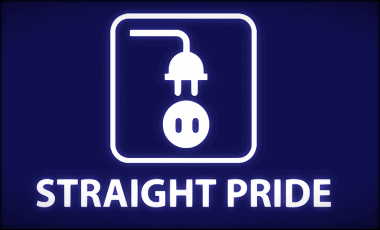
Celebrate Gender Inequality!

Zac Petkanas Told Tucker Carlson That No Examples Exist…
…So, I provide two for him:
 Tucker Carlson had on Zac Petkanas, Democratic National Committee senior adviser, to discuss the transgender bathroom issue going beck to the states to control rather than the federal government dictating to the states what they should do (more via the Daily Caller). during the interview, zac said Tucker’s example was invalid BECAUSE there are no examples Tucker could provide. BZZZZZZT, wrong. (SEE MORE)
Tucker Carlson had on Zac Petkanas, Democratic National Committee senior adviser, to discuss the transgender bathroom issue going beck to the states to control rather than the federal government dictating to the states what they should do (more via the Daily Caller). during the interview, zac said Tucker’s example was invalid BECAUSE there are no examples Tucker could provide. BZZZZZZT, wrong. (SEE MORE)
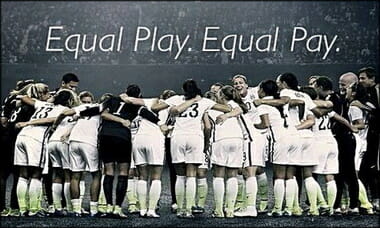
Biology 7 — Sociology 0
 The Matildas were missing several established internationals on Wednesday night, including star striker Kyah Simon. They also rotated players more than usual, which contributed to a lack of cohesion. However, there is no denying losing to a team of school boys is far from ideal preparation for the world’s fifth ranked team in their quest for Olympic gold at Rio. The following is with a H/T to Gay Patriot, and is from RACONTEUR REPORT
The Matildas were missing several established internationals on Wednesday night, including star striker Kyah Simon. They also rotated players more than usual, which contributed to a lack of cohesion. However, there is no denying losing to a team of school boys is far from ideal preparation for the world’s fifth ranked team in their quest for Olympic gold at Rio. The following is with a H/T to Gay Patriot, and is from RACONTEUR REPORT
More proof that no one in the Pentagon or DoD can read:
A team of 14 year old boys kicked the asses of the Oz Women’s Olympic Team, the latter being ranked as one of the Top 5 women’s teams headed to the 2016 Olympics in Rio this summer.
Australia’s national women’s soccer team have suffered a devastating defeat in the lead up to the Rio Olympics – going down 7-0 to the Newcastle Jets under-15 boys side.
Despite the embarrassing defeat on Wednesday night at Valentine Sports Park in Newcastle, the Australian team will travel to Brazil as one of the gold medal favourites.
While the Matildas played with a rotating squad, there is no denying losing to a team of school boys is far from ideal preparation for the world’s fifth ranked team in their quest for Olympic gold at Rio.
[….]
And I don’t know the IOOC policy on dudes who “identify” as women, but if you can find a dozen or so gender-bender boys about 14-15 years old, and get them entered in Women’s Soccer at this years’ Olympics, they’ll have a pretty easy shot at the medal round.
Just saying.
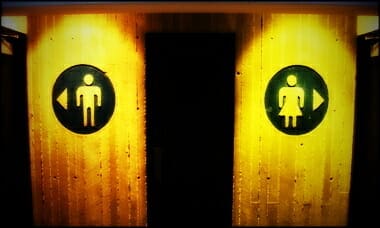
Bathroom Wars ~ Firewall!
In his latest Firewall, Bill looks into the fallacies involved in the latest product of the Progressive Synthetic Injustice machine.

Author Laura Bates Interviewed by Dennis Prager
Dennis Prager interviews author and columnist, Laura Bates, author of “Everyday Sexism.” This is where Prager doesn’t necessarily debate a guest, but uses the Aristotelian approach of asking questions so the listener can pick up on the inherent inconsistencies of the guests positions. Good interview.
My PAGE on the “Gender Wage Gap Myth” can be found here.
_________________________________________
For more clear thinking like this from Dennis Prager… I invite you to visit: http://www.dennisprager.com/ ~ see also: http://www.prageruniversity.com/
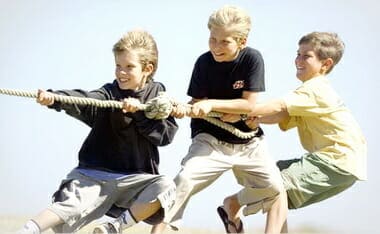
“War On Boys” ~ Christina Hoff Sommers (via Prager University)
